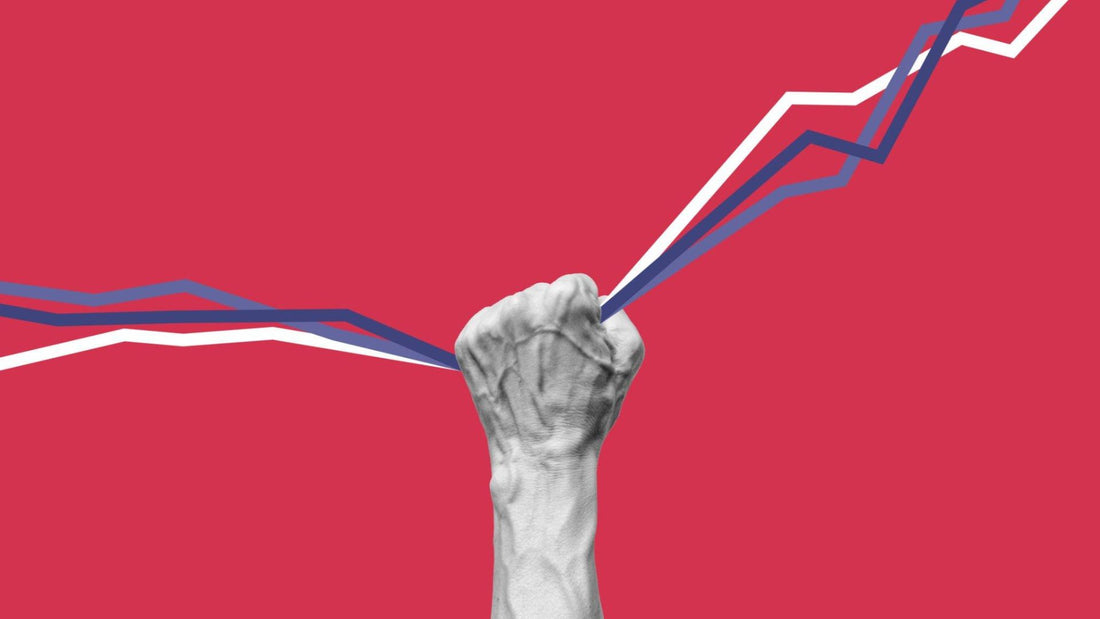Why Is Deflation Bad for the Economy: Here's What You Need to Know

On Thursday, Walmart CEO Doug McMillon said deflation could be coming as general merchandise might become a whole lot cheaper. Consumers have been coping with inflation since 2020, with the cost of nearly everything slowly increasing: groceries, rent, utilities, and more. Deflation occurs when the inflation rate falls below zero, and prices generally decline throughout an economy. Disinflation is what happens when the inflation rate falls but remains positive. In disinflation, prices continue to increase but at a much slower rate.
For many years, consumers have been voicing their concerns over what seemed to be a looming recession. However, politicians failed to concur, citing our economy as steady and stable. But, this is the furthest thing from the truth, with more of the 1% disconnecting from reality and squeezing consumers financially to the point where many of us have opted out of fulfilling our wants and are focusing simply on our necessities—and even that is becoming a stretch, with many Americans taking to the road in minivans and RVs with their families, deciding to ditch the idea of homeownership and renting altogether.
Deflation means lower consumer spending, which, in turn, leads to high unemployment rates, and this could be terrible in the long run. When investors grow concerned about a company's ability to scale, they may sell their stocks or pull out entirely. Many of the large companies you see today are valued at billions of dollars due to the investments they’ve received, whether privately or publicly traded—stocks.
If the value of a business goes down because their prices have fallen, then they will not be able to stock as much inventory or pay decent salaries. This could then lead to more families not being able to afford anything at all. Lastly, what is more concerning is the reduction of gig work such as Uber, Doordash, UberEats, and more.
It's healthy for an economy to increase prices over time; it shows growth in both the economy and the population. Essentially, disinflation is what we should aim for, versus deflation. When the economy raises over time, that contributes to an increase in the cost of living. Employers are expected to give their staff a raise each year, and prices for goods raise each year; it’s a system that works together to keep the economy stable. Not to mention most of our technology and resources are outsourced. If other countries such as China and India are seeing a raise in their sales and their citizens are earning more, America will have no choice but to compete.

Think of it like this… we’ve seen more ads online for companies like Temu, Shein, Aliexpress, all products of China in recent years. Americans are spending far more now on their products, therefore boosting their economy while lowering our own. The money is leaving the country at a rapid rate. If Americans cannot afford to compete with these businesses, then they’ll have no choice but to lower prices for their goods and services.
The difference is, those places in China can afford to have low prices because their employees do not earn as much. Whereas Americans want to buy homes, live in luxury apartments, afford a Birkin, and more, so the demand for higher wages here is different than it is elsewhere. But if Americans keep lining the pockets of these merchants, then it will, of course, lead us down a dark path.
Many years ago when Aliexpress and Shein weren’t as popular, places like Forever 21, beauty supply store chains, etc., would get their inventory and then sell to Americans at a higher cost. But, this meant high-profit margins, more jobs for Americans, and a better economy. Please do not be fooled when you see headlines that read, “Black Friday Shoppers Spent A Record $9.8 Billion In U.S. Online Sales, Up 7.5% From Last Year” as this could very well mean that shoppers spent their money with companies that operate overseas, versus here in the United States. Also, let’s account for the rise in pricing; if an American spent $8 on an item this year that was $4 last year, of course, it would seem as though more money was made/spent this year.
Deflation is bad for the American people. It’s understandable that other countries have studied us—our economy, our spending habits, and have created solutions that serve in their best interest. The thing is, we’re allowed to operate in other countries, so other countries are allowed to operate here. But China, specifically, was strategic in their approach; they created apps like TikTok to kill our attention spans and position themselves as a gig, with many content creators now spending more time online than ever.
This means fewer people studying for traditional careers—medicine, law, accounting. With our attention spans corrupted, our TikTok gig earning us upwards of $400/month, and Temu ads drawing us in with the $2.97 sales, it's all a plan. Now, China can raise their prices for fabric, materials, goods, etc., to which American businessmen and women will have to raise their prices to afford. In turn, Americans will shy away from shopping with places like Forever 21, which leads to lower sales and profit margins. More people will become unemployed, and the citizens of our country will become aggressive, which leads to an increase in crime and theft.
I hope this article helped to put things into perspective.
by Riley Cook








